Qatar’s gambit to gain influence is well under way
In a push to sway policy, the gulf state’s ruling monarchy has showered billions of dollars from natural gas on US institutions, mainly the military and universities.
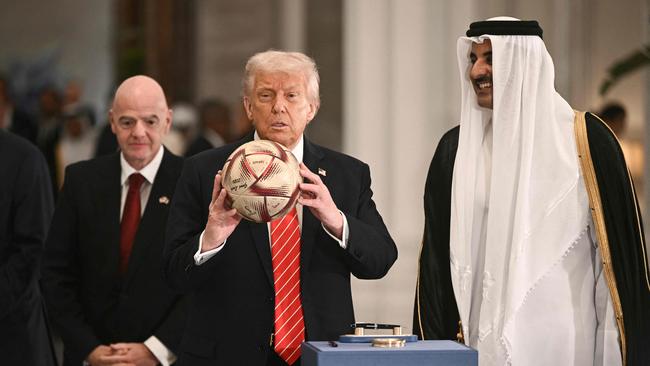
Qatar’s potential plan to provide a $US400m ($625m) jumbo jet to the US to use as Air Force One underscores how the tiny Gulf state has managed to diplomatically punch above its weight for years: It has a lot of money, and it is willing to spend it.
The country’s ruling monarchy has showered billions of dollars derived from its vast natural gas reserves on US institutions, mainly the military and universities, while ramping up spending on lobbyists to tilt policy in its favour.
A growing chorus of Republicans and Democrats have criticised President Donald Trump’s pursuit of the plane, arguing that it presents national-security concerns.
Mr Trump has defended the plane offer, saying he would be stupid not to accept it. A senior administration official on Wednesday said Mr Trump hoped to have the plane ready to use by the end of the year and wasn’t considering abandoning the plan. “It’s a beautiful plane for a beautiful price, and what’s wrong with that?” the official said.
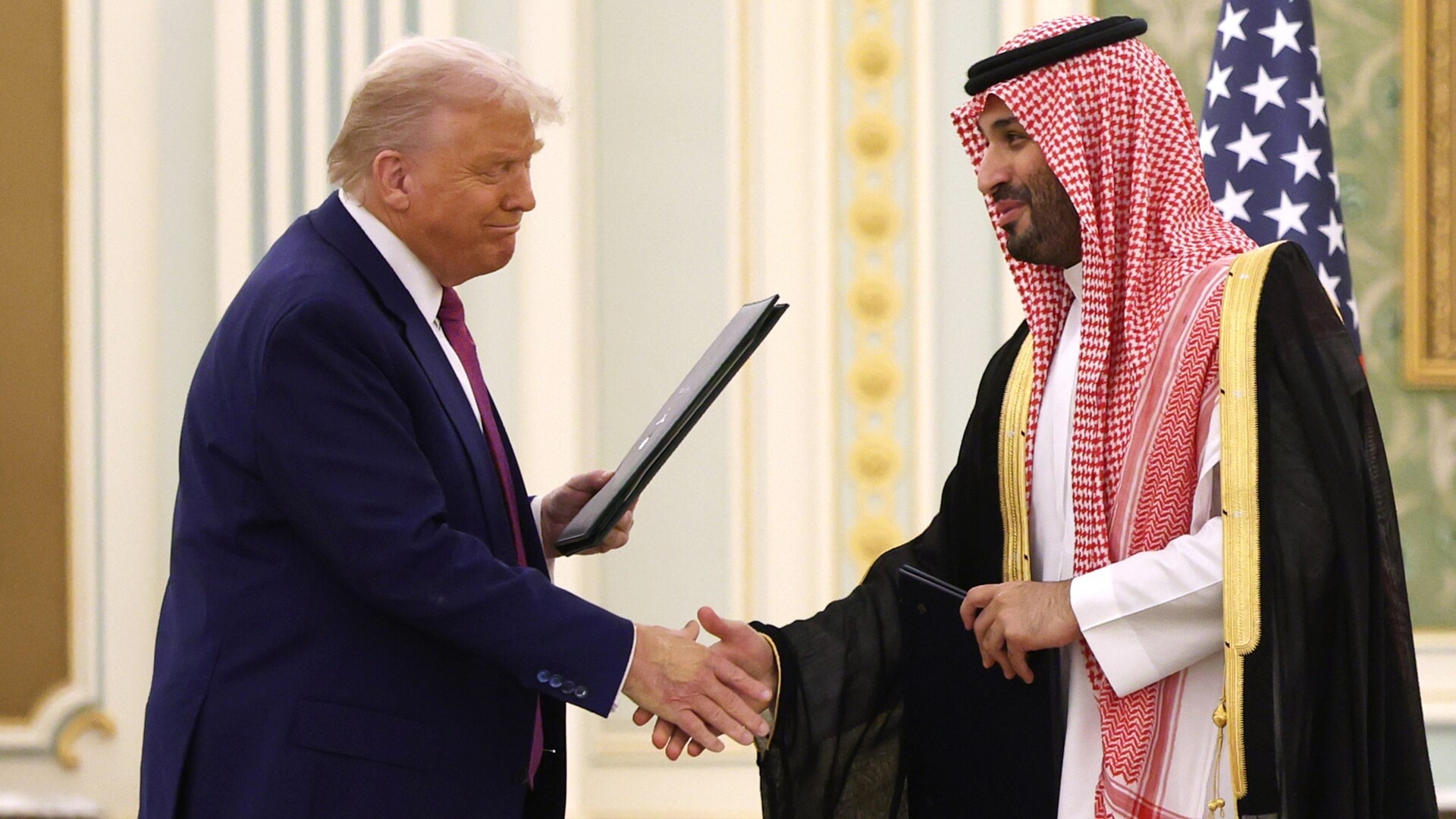
A spokesman for the Qatari embassy in Washington said lawyers from both countries’ militaries were reviewing the plane’s possible transfer. “Qatar doesn’t stand to receive anything in return for the possible government-to-government transfer,” said Ali Al Ansari, calling it “a reflection of the strong security relationship” with the US.
It wouldn’t be the first time Qatar has given away a luxury airliner to a foreign state. In 2018, Turkish President Recep Tayyip Erdogan said the ruling emir had donated a Boeing 747 to Ankara after hearing it was interested in a purchase.
Qatar’s former prime minister once told a television interviewer that the previous emir gave his private Boeing 747 to the late Yemeni ruler Ali Abdullah Saleh. And in 2000, a member of the royal family gave another 747 to Iraq’s state-run airline in “solidarity” with the country and its ruler, Saddam Hussein, according to a US news report from that year.
Lobbying
In a few cases, Qatar has also been implicated in alleged bribery schemes involving US officials.
A political influence campaign helped end the career of former senator Robert Menendez, who was sentenced in January to 11 years in prison. Among the charges: using his position to get Qatar to steer millions of dollars in investments from a state-backed fund to a New Jersey businessman who had given the politician hundreds of thousands of dollars in bribes, some paid in gold bars.
No Qatari officials were accused of wrongdoing.
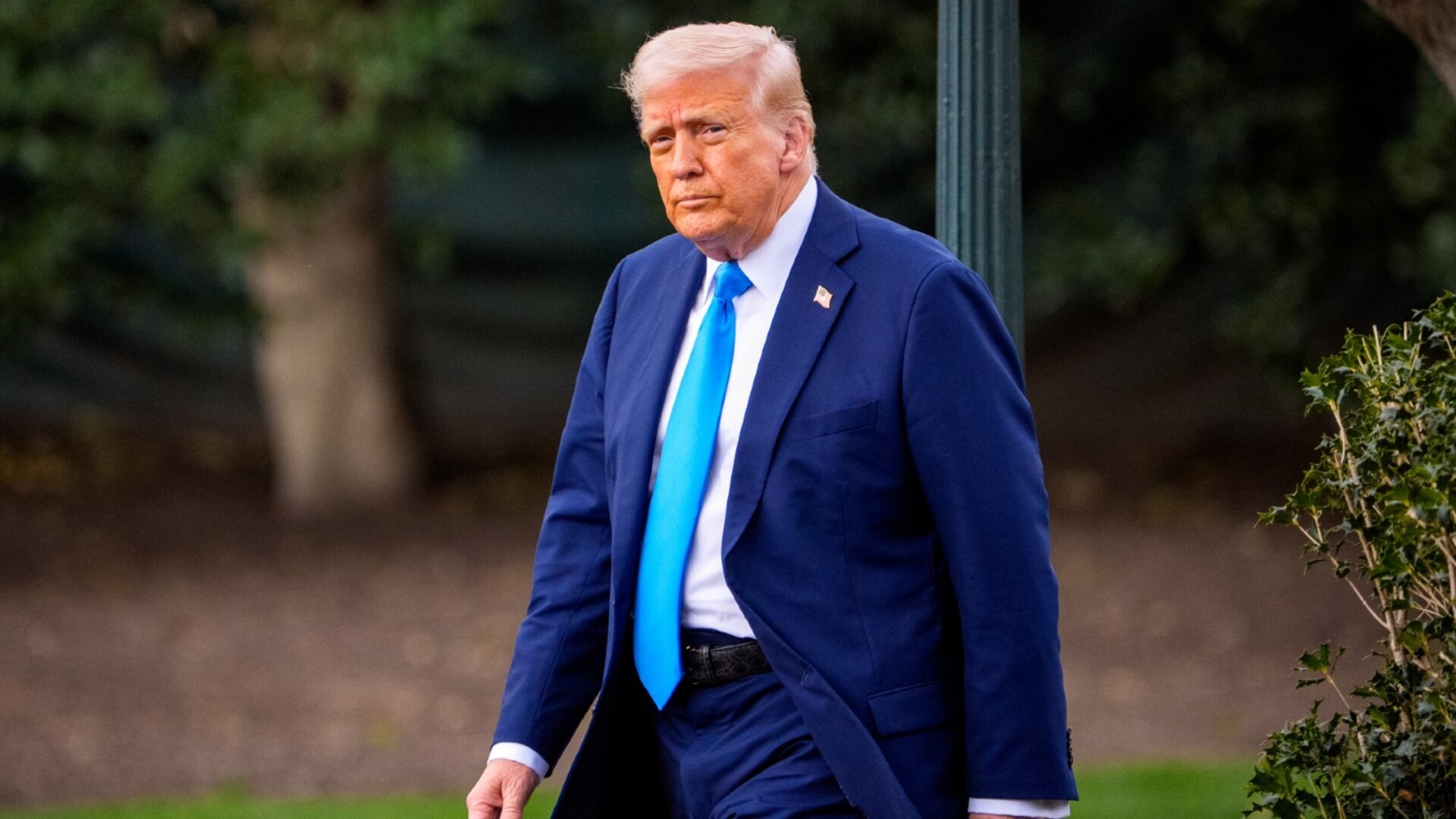
Another influence-peddling case rocked the Brookings Institution think tank in 2022 when the Federal Bureau of Investigation investigated allegations that its president, retired four-star marine General John Allen secretly lobbied US national security officials and politicians to get American backing for Qatar in its dispute with other Gulf countries.
General Allen resigned from Brookings, and the Justice Department later closed the case without bringing charges.
He denied wrongdoing or accepting any fees for his efforts on Qatar, and said at the time he had been working on behalf of US interests.
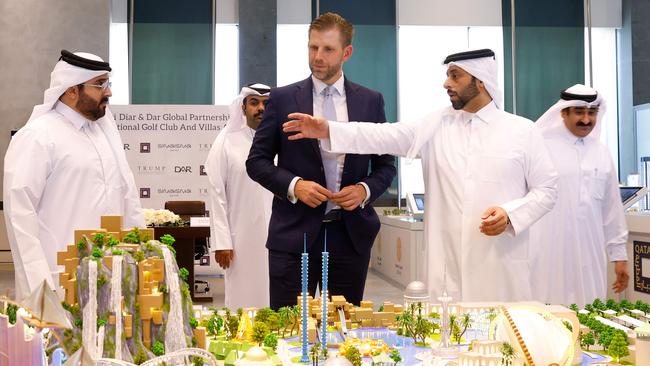
Qatar mixes economic statecraft practised by many other US partners and allies, including multibillion-dollar purchases of arms and other equipment that help intertwine its fate with America’s, with some less traditional arrangements.
All that is turbocharged by its extreme wealth and small size – its $US524bn wealth fund holds the equivalent of more than $US1.5m per citizen. On Wednesday, the state-owned Qatar Airways announced during Mr Trump’s visit that it planned to buy 210 Boeing jets in a deal the White House valued at $US96bn.
The result is a country with the landmass of Connecticut that enjoys outsize influence in Washington and has a seat at the table on numerous geopolitical issues where it otherwise wouldn’t even be an afterthought.
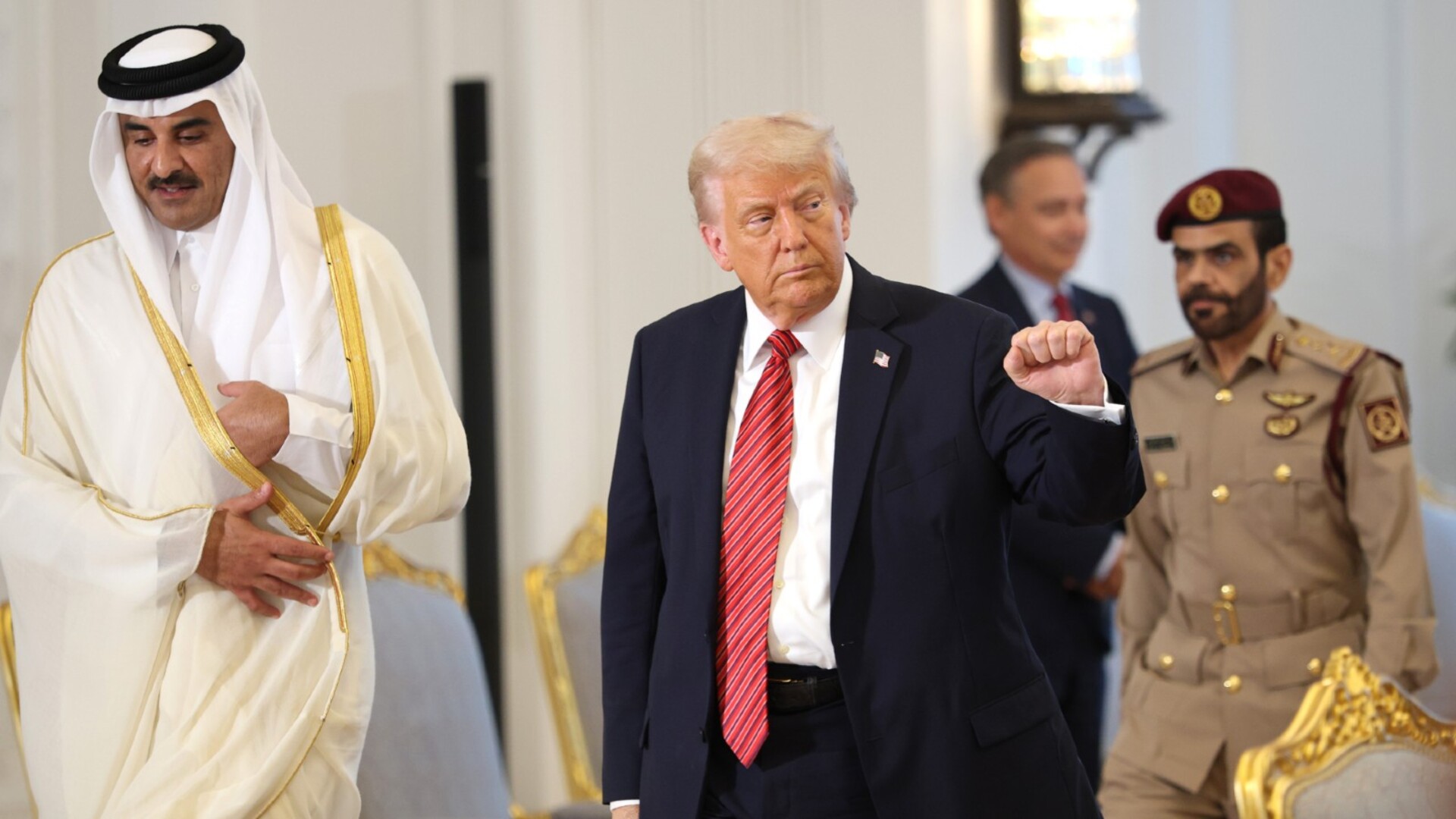
More recently, the country has embraced Trump Inc as well. In April, a Qatari minister appeared alongside Eric Trump as they unveiled a planned Trump-branded luxury golf resort being built by a private company in a larger Qatari state project. The deal between Qatar and the developer was struck before the election, a Qatari official has said.
A Qatari fund also joined with a UAE fund to invest another $US1.5bn with Mr Trump’s son-in-law Jared Kushner for his inaugural private-equity fund last year, before the election. Mr Kushner has said he told his investors they shouldn’t expect benefits as a result.
Critical air base
Qatar’s pursuit of influence is driven in large part by its precarious location in a conflict-strewn region: Nestled on the Gulf between two giants – Saudi Arabia and Iran – it is constantly worried about being wiped off the map.
In addition to securing Western backing, Qatar has bankrolled the Al Jazeera television network, giving it sway across the Arab world, and pumped money into bigger but poorer states as well as groups including Islamist rebels in Syria at the height of that country’s civil war.
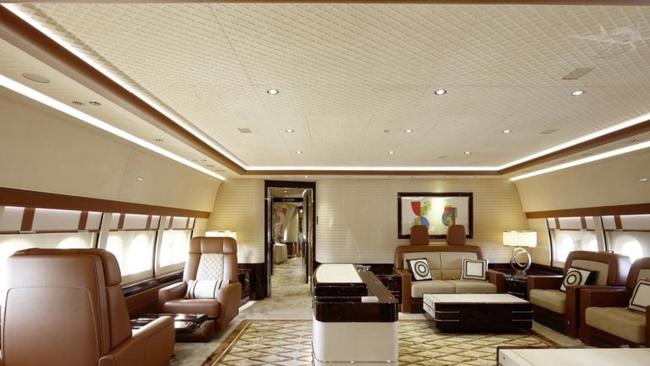
The country’s US strategy has its roots in a sprawling air base located at the centre of the peninsular nation. The Qataris have spent more than $US8bn since 2003 to build up and maintain Al Udeid, which hosts US Central Command and some 10,000 American military personnel, enabling the US to wage wars across the Middle East.
The base was critical to multidecade campaigns in Iraq and Afghanistan, including the 2021 withdrawal, and remains an important forward operating position for counter-terrorism.
The US agreed last year to extend its presence at the base for another decade. Mr Trump addressed troops there on Thursday before closing the Qatar leg of his four-day regional tour.
Mr Ansari, the embassy spokesman, said Qatar was an “indispensable security and energy partner” to the US and called its partnership with the Trump administration “very productive.”
He said the US would always be a key destination for Qatari investment, which creates jobs for Americans.
Around the same time that the base was gearing up, Qatar began paying top US universities to operate campuses on Qatari territory. It is now the single largest foreign funder of American universities, according to US Department of Education data, providing more than $US6bn over the past 15 years through gifts or contracts with schools including Cornell, Georgetown and Northwestern.
Much of that money is tied to satellite campuses that have sprouted in a cluster near the capital, Doha, known as Education City, where small outposts of Texas A & M and Carnegie Mellon host hundreds of Qatari students in avant-garde buildings.
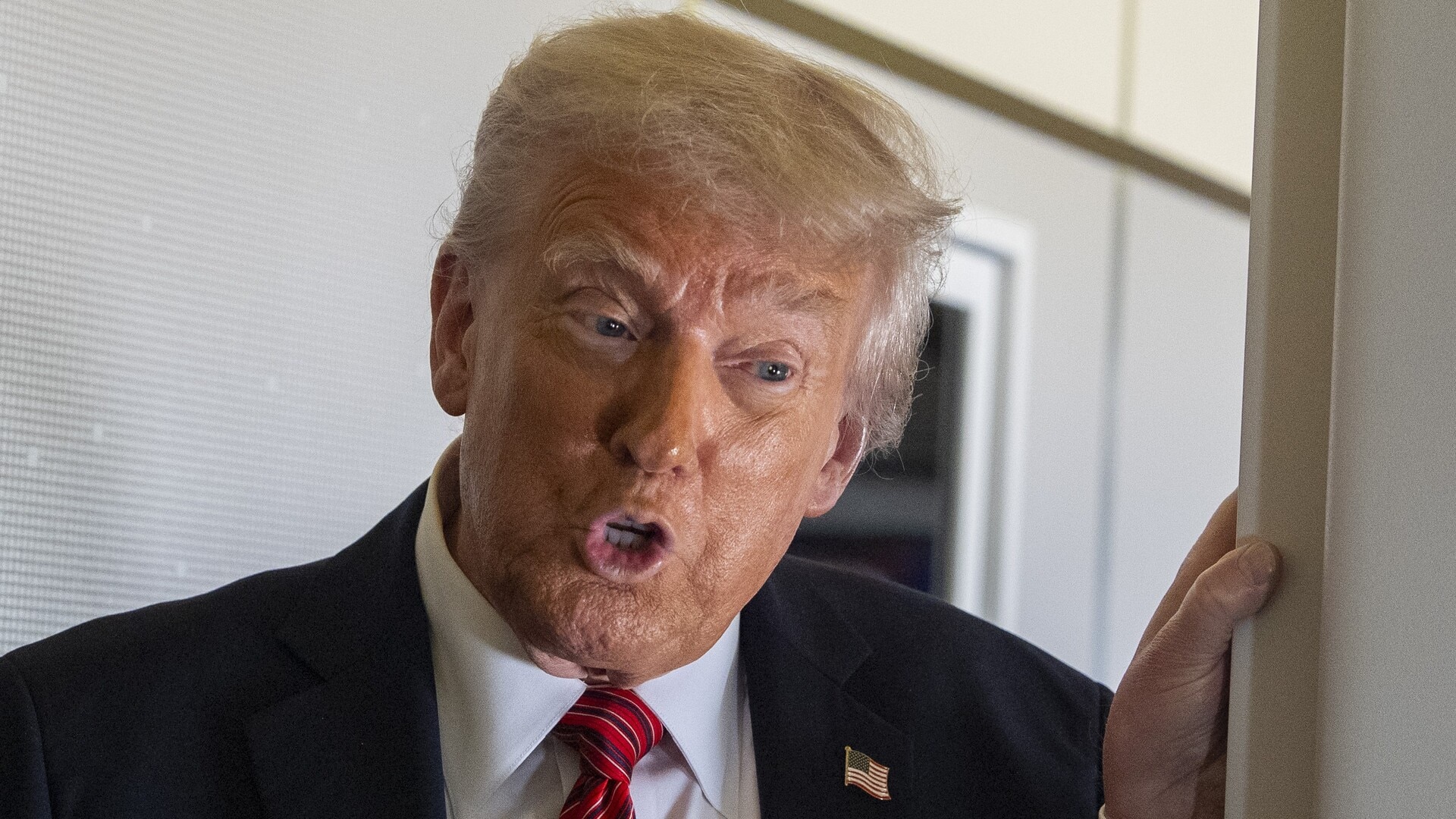
The outsize higher education funding levels have drawn criticism since the start of Israel’s war in Gaza from Republican politicians and the Trump administration over allegations that the money from Qatar and other Arab states was skewing teaching about Israel and the region.
Education Secretary Linda McMahon singled out Qatar in an April 23 statement on an executive order expanding oversight on foreign education gifts.
Mr Ansari denied that Qatar interfered in the curriculum of any US educational institution or had any influence on US universities, calling that “deliberate misinformation” by “a campaign of bad actors” aiming to weaken the US relationship and undermine Qatar’s mediation role in the Gaza war.
Along the way, Qatar boosted spending on Washington lobbyists. A major turning point came in 2017, when Gulf neighbours imposed an air and trade embargo following a greenlight from Mr Trump during his first visit to Riyadh.
Qatar ramped up its advocacy in Washington, taking on a burst of lobbying firms to press its case with politicians and the White House.
Its roster of registered lobbyists and public-affairs firms tops 18 – costing more than $US6.5m in 2024 – including at least four new firms since January, federal disclosures show. Qatar’s lobbyists blitz congressional staffers with updates on issues such as the war in Gaza and security.
The Wall Street Journal


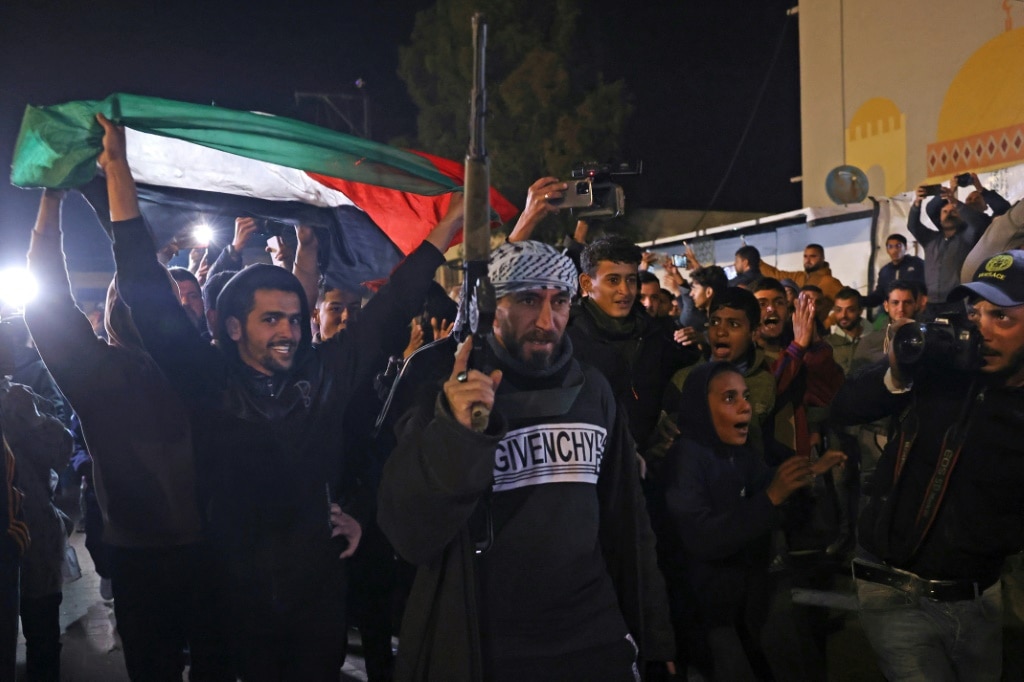
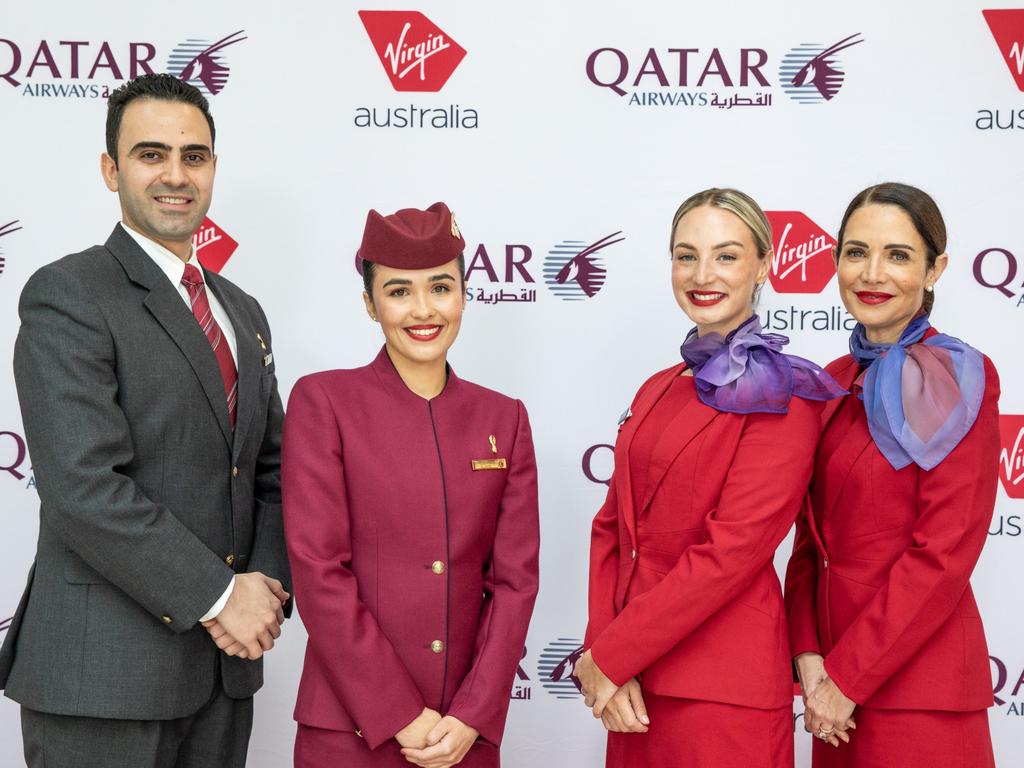
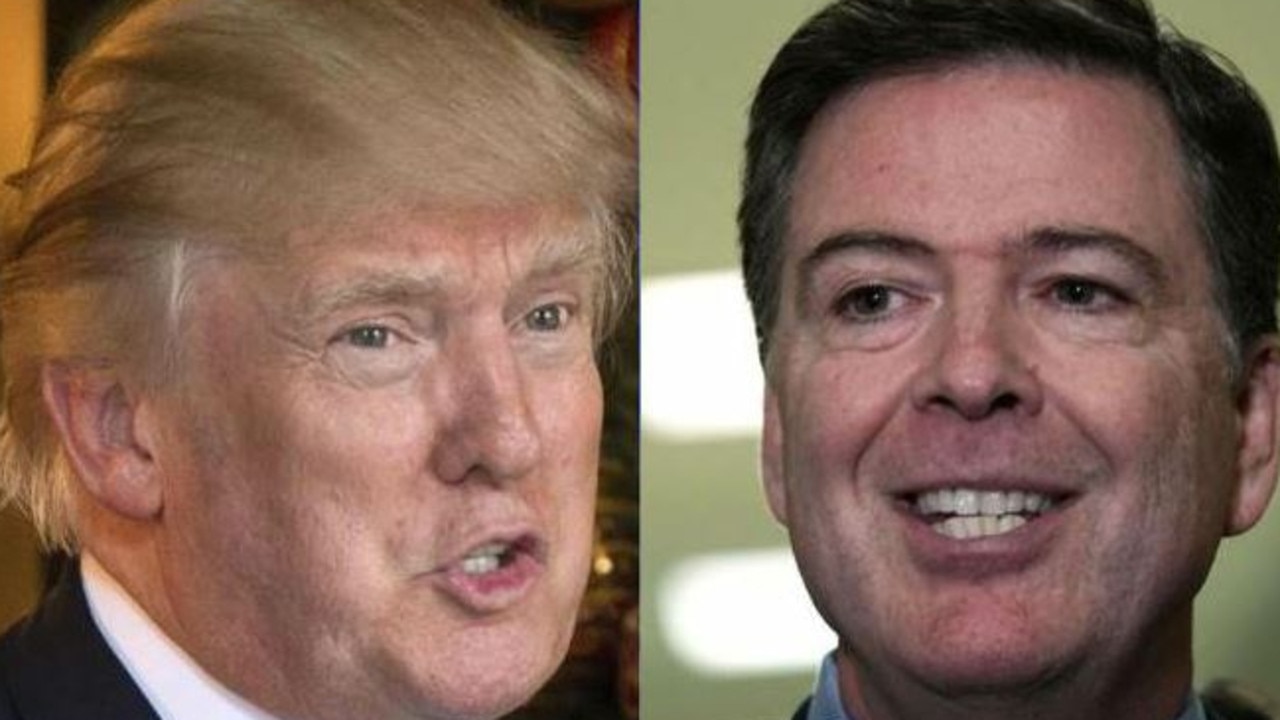
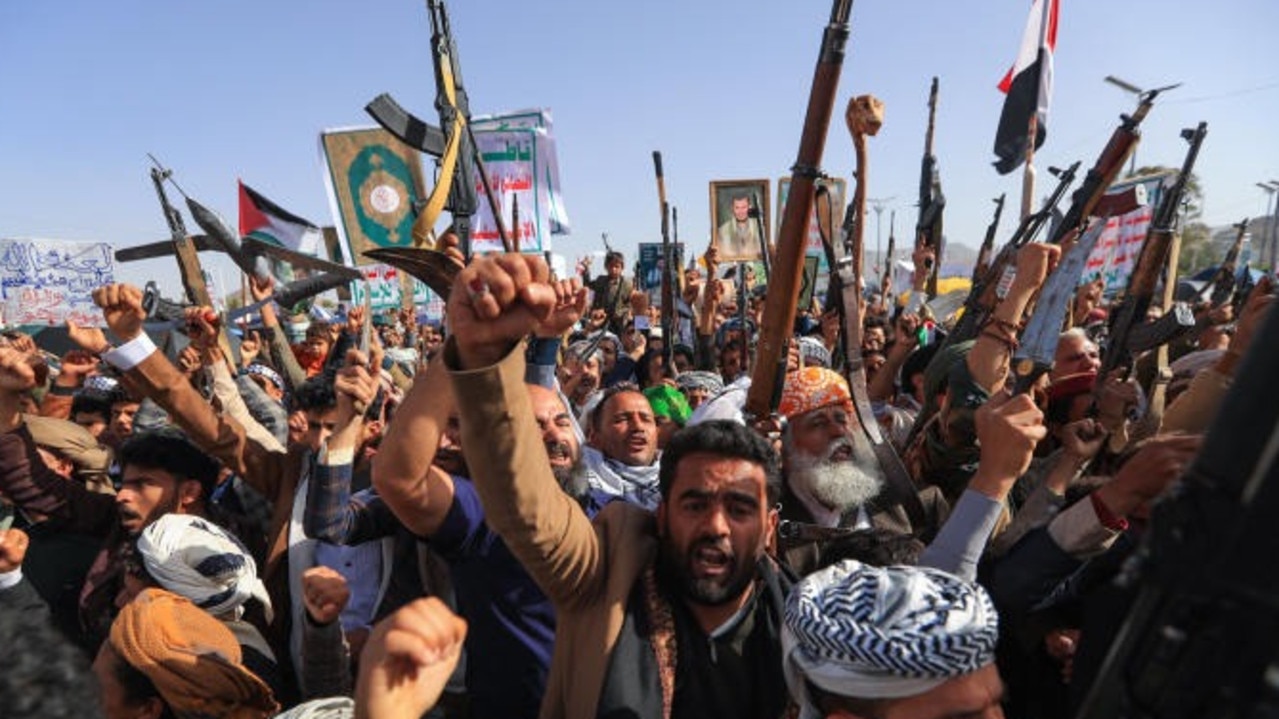
To join the conversation, please log in. Don't have an account? Register
Join the conversation, you are commenting as Logout